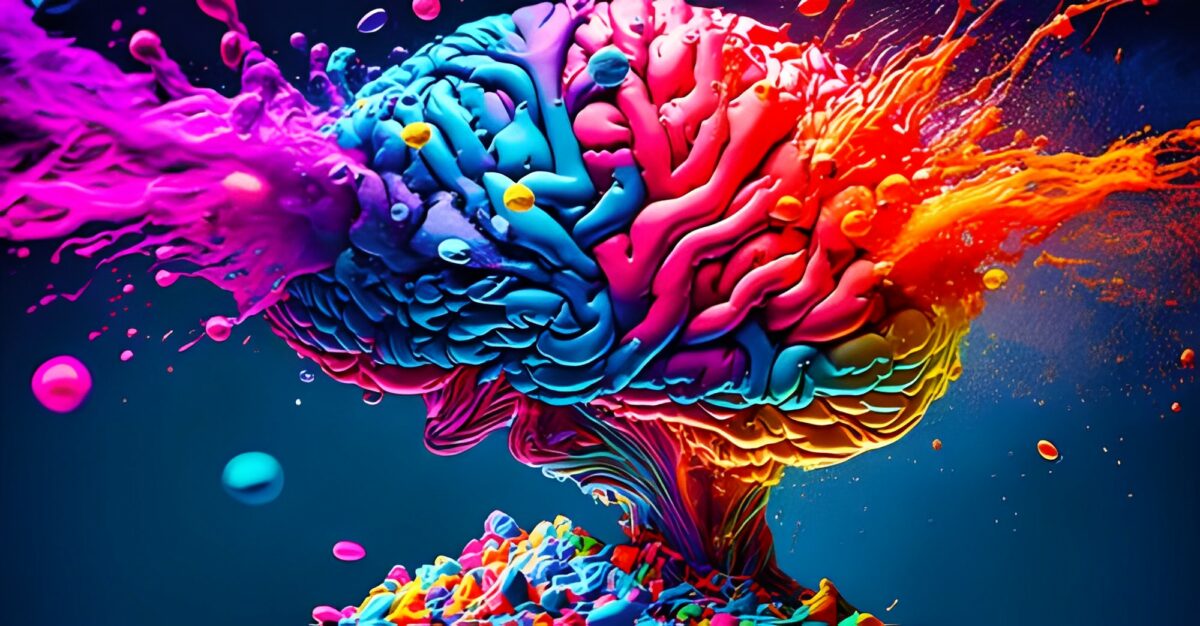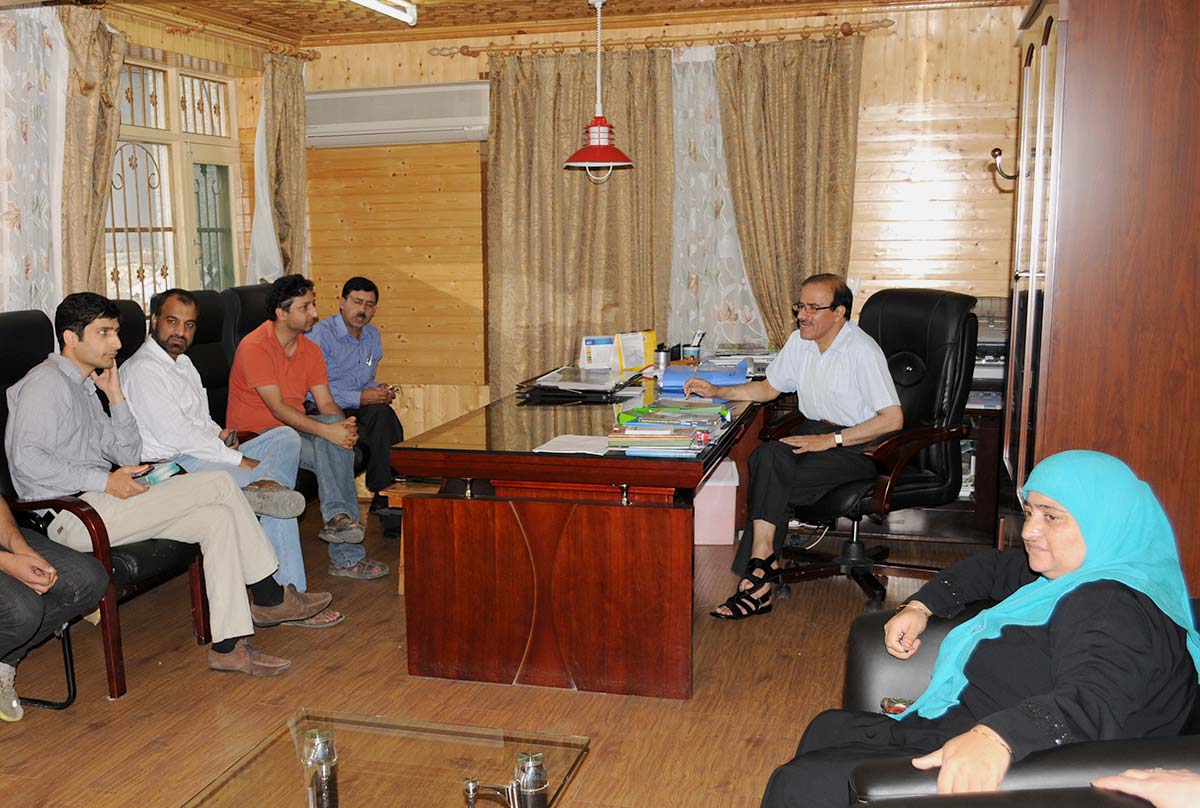With Jammu and Kashmir recording the highest prevalence of dementia across India, the researchers are desperate to find answers to a trend that many think has leapt out of the mass depression the region has lived with, reports Insha Shirazi
A recent study shocked the scientific community by revealing that Jammu and Kashmir top the list of areas in India having the highest prevalence of dementia. Published by the Journal of the Alzheimer’s Association, the study prevalence of dementia in India: National and state estimates from a nationwide study put the dementia prevalence in the 60-plus population in India at 7.4 per cent.
What set the alarm bells ringing was that the prevalence of dementia was 4.5 per cent in Delhi and 11 per cent in Jammu and Kashmir.
Alarmed over the findings, the scientists have started asking for more investigation to determine whether the long-running insurgency in Jammu and Kashmir, which has raged for more than 30 years, may be the cause of the area’s high dementia prevalence.
In Jammu and Kashmir in general and Kashmir in particular, cases of dementia are stated to be on the rise. In 1986, a few years before the onset of militancy, a study on the prevalence of Alzheimer’s disease in Kashmir found no cases of dementia in Kashmir.
Changed Situation
Now the situation has completely changed.
“We routinely see 3 to 5 cases of dementia-like cases in our daily OPD, on average,” Dr Yasir Rather, professor in the Department of Psychiatry, IMHANS GMC Srinagar said. “Brain cell destruction is the root cause of dementia. The communication between brain cells is disrupted as a result of this injury. Memory, thinking, behaviour, and feelings might be impacted when brain cells are unable to communicate correctly.”
Off late, people with chronic dementia are more visible. “I regularly observed the activities of my grandmother, who has dementia. She is in her late 70s and exhibited strange behaviours, including forgetting my name and whether or not she had eaten lunch,” a university student, Alya said. “She used to converse with herself as if someone else were around, and sometimes, my grandmother’s condition worsened.”

The term dementia refers to a spectrum of mental impairments, including memory loss, difficulty speaking or understanding, difficulty solving problems, and another cognitive decline that is severe enough to affect a person’s ability to go about their everyday activities. This spectrum includes several different varieties of dementia, with Alzheimer’s disease being the most prevalent.
There are two types of dementia. Vascular dementia, dementia with Lewy bodies, and frontotemporal dementia are irreversible. Reversible types include dementia-like conditions triggered by vitamin deficiency like vit B 12 or B 1 or due to thyroid problems. “Most people develop Alzheimer’s disease after the age of 65, but people under this age can also develop it,” Dr Yasir said. “This is called early-onset Alzheimer’s disease, a type of young-onset dementia. Dementia-like Frontotemporal type has been diagnosed in people in their 50s, 40s and even in their 30s.”
“The early signs and symptoms of dementia will vary depending on the progression,” Dr Yasir said. “At the onset, the person may experience challenges with their short-term memory, and struggle with things such as paying the bills, preparing meals, forgetting names and religious ritual timings and household chores, or getting lost in a known area. With a moderate stage, an individual may have trouble speaking or understanding speech and they may not understand spatial awareness. In severe stages, a person will no longer have the ability to communicate and will be unable to care for themselves.
High Prevalence
What is, however, not known is why Kashmir offers a high percentage of people with dementia. The likely reasons, Dr Yasir said could include genetic predisposition, poor nutrition, lack of access to healthcare, and environmental factors such as water and air pollutants like excessive use of agricultural and horticulture pesticides in our region.
Besides, he said, Kashmir may have a greater prevalence of dementia due to the high rates of chronic stress, depression, and other psychological problems in the population. Moreover, the prevalence was greater in rural areas (8.4 per cent) than in urban areas (5.3 per cent), highlighting the urgent need to increase diagnosis in rural health facilities.
Dr Kamran Nisar, a researcher at the University of Kashmir’s Centre of Research for Development, is working on the prevalence of Alzheimer’s disease in Kashmir. Alzheimer’s dementia, he said, is the most prevalent type of dementia, accounting for 70-80 per cent of the cases.
Kamran has also been trying to find answers. He said a lot of factors contribute to dementia, which includes prolonged stress, conflict, floods, and separation from loved ones. Besides, dementia is also impacted by dietary choices, physical inactivity and family history. People who engage in physical activities, such as cycling, have a far lower risk of developing dementia than physically inactive people.
“In Kashmir, there is a small amount of awareness about dementia, and as a result, people frequently misunderstand what dementia is and how it differs from forgetfulness or some other age-related condition,” Dr Kamran said. “We need to address this issue as much as we can because no awareness campaigns or events are being organized at the university or college level about this dementia and its prevalence is rising in Kashmir.”
Neurologist Dr Irfan Yousuf, also asserted that Kashmir lacks basic knowledge about understanding the crisis. “There is a lack of knowledge about dementia and people mistakenly think it is a form of depression, even though these are unrelated conditions,” Dr Yousuf said. “A person with dementia acts normally and is unaware that they are afflicted with the illness, unlike a person with depression, whose mood is not always good, and who skips interactions as well.”
Alzheimer’s disease is a neurodegenerative condition in which brain cells (nerve cells) are not operating normally. Vascular dementia occurs when the brain’s blood arteries get blocked, preventing appropriate blood flow and leading to neuronal dysfunction.
Chronic Depression
Kashmir has been the capital of mental sickness for a long time. For many decades, Kashmir has reported massive mental morbidity. Nearly 18 lakh adult residents of Kashmir, which is almost 45 per cent of the entire population, showed symptoms of mental distress, according to the 2015 survey by the Médecins Sans Frontières (MSF, or Doctors Without Borders). The survey revealed that 41 per cent of the population showed signs of depression, 26 per cent exhibited signs of anxiety, 23 per cent depression and anxiety and 19 per cent showed probable symptoms of post-traumatic stress disorder (PTSD), 17 per cent have depression and PTSD, 18 per cent have anxiety, depression and PTSD and 14 per cent have anxiety and PTSD.

Though mental healthcare has expanded over the years and has a better spread, in comparison to the 1990s, the situation is still seriously challenging. The increasing incidence of drug abuse has added yet another load factor to the mental health system.
Detecting Dementia
Dr Irfan Yousuf said the first signs of dementia are when a family member or guardian notices that the person is repeating the same dialogue over and over again and that their mental activities are completely different and are not functioning properly. It is possible to alleviate symptoms and halt the progression of dementia, he said. Studies on dementia have been conducted, and the treatment is still ongoing.

“A patient with advanced dementia forgets the route of the road where he or she frequently travels. Particularly at night, they lose track of how to get to their kitchen and bathroom,” Dr Yousuf said. “Although the person suffering from dementia is unaware of these symptoms, family members and their attendants have seen changes.”
from Kashmir Life https://ift.tt/3aZkAX5
via IFTTThttps://kashmirlife.net
No comments:
Post a Comment